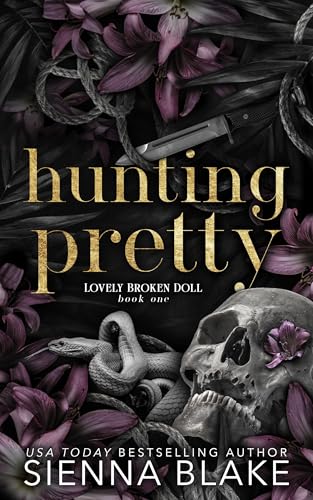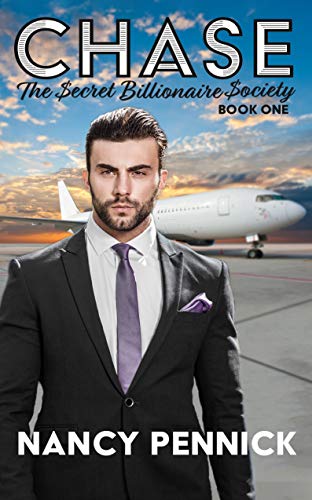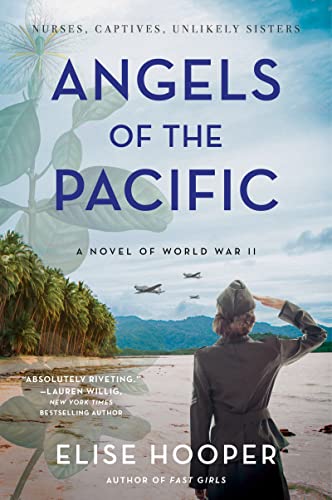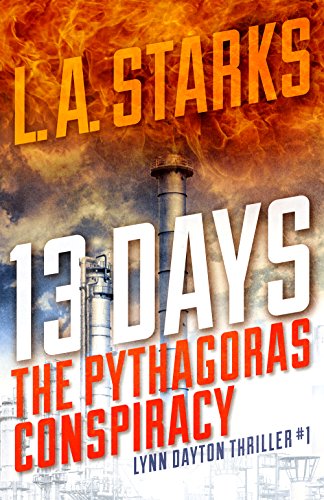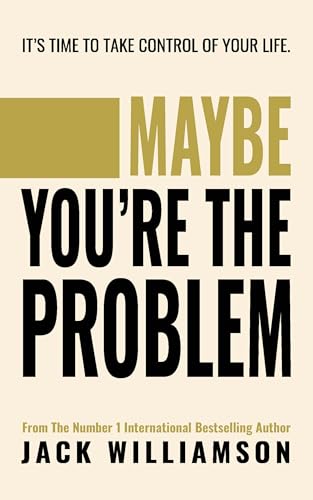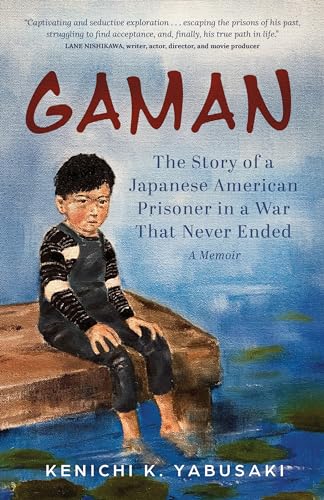An incomprehensible admission, a horrifying deed … A secret with the power to destroy, and a superhuman father with beast-like brilliance …
At age thirteen, five years after his mother’s death, Joel Gasteneau is beaten so brutally by his father that he almost doesn’t survive. Yet he makes himself live, his strength of will extraordinary even then, and he runs away from home.
Alone and comforted only by running and the bloodless beauty of math, he makes his own way, rising eventually to the Green Berets: an elite athlete who nevertheless cannot quite outdistance himself from the torments of his childhood.
Now, at thirty-three, consumed by doubt and a growing sense of hypochondria, he resolves at last to follow through on an idea he first thought of when he was a child: to seek out a piece of evidence that shows with certainty God’s hand at work upon the earth. But in seeking this evidence, he’s stricken by an enigmatic illness that almost kills him: and there, inside the fevered meat of his brain, he unearths a memory so chilling that his life is forever altered.
5-star praise for Pale Criminal:
A Wild Ride!
Mr. Harvey most certainly has a way with words. The author creates some of the most vivid, exciting, and eerie imagery in very unique and subtle ways
Mind Stretching
“…captivated by…Pale Criminal with its unique and twisted suspense….really makes you think about life and those in your life…”
an excerpt from
Pale Criminal
by Ray Harvey
1
He was off the interstate before dawn, striking out across the plains and up the Snowy Range to Sugarloaf. In the dark, he could see rags of thermal mist glowing above the roadside grass, but one silvery ghost alone brought a quickening to his pulse. It was large and oddly formed, and for several hundred meters it appeared to keep pace with him, following just beyond his reach, like a phantom ship. Then it was gone.
Thirty miles farther, where they’d instructed him to be, he pulled into a kidney-shaped turnout and waited in his car while the first light started in the east and spread like milk across the April sky. The waxing moon still hung over the western mountains. He sat behind the steering wheel with the engine idling and the heat blowing thickly into his face. He sat with his teeth unconsciously gritted. He glanced into his rearview mirror and saw the sky hulking up behind him, then he turned and stared at the sky over his shoulder, as if something up there watched him in return. A sense of unease crept over him, something he couldn’t identify. For several weeks now, since the onset of a mysterious illness the worst of which had passed quickly and yet which, even now, had not fully left him, he’d been falling in and out of this anxious state of mind, a tense, almost paranoid state accompanied by bouts of sleeplessness and a feeling of hypochondria he could not eliminate. It had become his habit to worry about his health.
But there was something more: the entire night before and into this morning, for no particular reason, sad memories of his mother kept worming their way into his brain, coming with a strange insistency. His mother had been a silent soul, elegant and calm. He had imagined himself done with her long ago. Why was he thinking about her again now? What did she matter at this point? At the same time, the nagging notion pressed in around him that there is no God, and these two thoughts seemed connected in his mind; he wasn’t sure how. His mother, with her touch of otherworldliness, had never been a believer, that was for certain. But he had been once, though gradually as he’d gotten older his religious impulse, of its own accord, had given way to considerations more nearly philosophical. Yet the idea of God as an all-loving, all-knowing presence had always comforted him. And now it seemed gone for good. So that here, at age thirty-three, he was beset by the desire to lie down in his mother’s room again, as he had when he was a child, to just lie there on her couch and that was all, not next to her, but with her simply somewhere in the room.
So persistent were these thoughts that fifty miles ago he’d pulled his car over and retrieved from his army bag the one and only letter she had ever written him, a missive slipped inside a book she’d left for him, one of a whole trunkful. Indeed, he’d not looked at this letter in many years, and it was in part the realization that she should write him in such a clandestine manner, striking him anew, that was troubling him now.
The single page lay folded twice on the passenger seat. He was apprehensive about the prospect of rereading it.
He turned to the window. Cars trickled in around him. He held his wrist draped over the steering wheel, the bone gleaming within. He sat there, watching a kernel of gray light in the northeast swell up and seep out across the sky, negating the morning stars one by one. His eyes were soft, soft as soot, but they contained depths, a metal strength. There was something unbreakable in his features. He had acne scars gouged beneath either cheekbone, but he was good-looking in spite or perhaps because of them. His arms were lean and laced with long azure veins. He had two hundred dollars folded in the back pocket of his jeans. His gaze was pensive and preoccupied. Within the last two hours, without consciously realizing it, he’d become convinced that someone would pursue him eventually. He just didn’t know who—or how long it would take before he was found.
Beside him and resting facedown atop his mother’s letter was an open copy of The Complete Novels of Sherlock Holmes, the same book she’d hid the letter in all those years ago. He glanced at it now. It occurred to him wonder if there was something significant in this. Had his mother chosen this book for a particular reason, beyond the mere fact that as a boy it had been one of his favorites and she’d read it to him religiously? Had she been trying to tell him something, encoding a secret, perhaps, for him to unravel at a later time? He flipped the book over so that he could read the pages the letter had marked. The left-hand side was blank; the right-hand side was blank but for these words:
The Valley of Fear
He sat scowling. His nerves were jagged and he’d begun to perspire. He could feel his heart hammering below his jaw, in his neck, in his temples.
Was he imagining things? In his foggy state, he couldn’t tell. He couldn’t process the questions objectively.
He moved his eyeballs back to the letter. Everything seemed suspicious. He sat staring at the page. Finally, disgusted with himself for his protracted delay, he reached over and snatched the letter up. Its message was brief:
You are my child, bone of my bone, blood of my blood, son of my womb, and you mean more to me than I can say. If anything should ever happen to me and I’m no longer here to remind you of it, remember this always: nothing is greater than life. Remember always: you must live. You must always live. Your life is your own. I love you so much. Your mother…
Her signature looked identical to the rest of her writing: the same fluid unslanted hand he’d always admired. The brittle paper still carried a whisper of her scent.
He refolded the page and was about to slip it back inside the book and be done with the whole thing, when he noticed something strange: a small drawing on the backside of the paper, block letters printed beneath. It was a child’s game, a game of hangman, which he, age six, had played with his mother. He had forgotten all about it; he remembered it now. His mother had chosen a long word for him to figure out and he had lost. The stick figure was hanged.
It struck him particularly that she’d given the figure long wavy hair, indicating, in essence, that the hanged person was female. Another dim memory tried to surface in his mind, failed.
He gazed at the incomplete word:
_ A _ _ I _ E S S
She had written the rejected letters just above the gallows:
Y M U O R T
He felt there must be an important clue in all this, something exceptional, but a clue into what exactly, he had no good idea. He wondered again if it was all in his imagination.
He stared at the game of hangman for several minutes. Then, abruptly, he reached up to his sun visor and extracted a black pen. He filled in the missing letters:
H A P P I N E S S
When he was finished, he noticed, in the gaining light, that more had been written there: a phone number, erased but still faintly readable, which the figure of the hanged girl was partially covering, as if at one time someone had tried concealing the number. He didn’t know whose phone number it was. Still, he thought he recognized once again his mother’s handwriting, but because of the erasure he couldn’t be sure.
He sat there, looking.
The light got darker, then turned violet, and at six o’clock the rain began. Shortly after that, the superintendent drove up in an orange truck and made an announcement. He thanked them all for coming and then said that he was sorry. He said that the job had been canceled because funding had been pulled. He said that a new road was being built outside Gemstone and into South Dakota, and that if anyone wanted to get on with a crew there, they should head out now because, he said, it was a long way off. Then the superintendent climbed back in his truck and drove away.
The rain continued to fall, light and misty. Above Medicine Bow, the clouds were moving rapidly now, disclosing thin slices of baby-blue. Sugarloaf Peak wore a long scarf of mist, a wig of snow. A dark wilderness stood on the mountain below. He got back in his car and sat for many minutes watching the rain burst noiselessly against his windshield.
So it was now that, searching for work, he resolved upon something extraordinary, something he’d first conceived years ago but never followed through with. He resolved to seek out, once and for all, a piece of evidence that showed with certainty a divine hand at work upon the earth: some incontrovertible fact that mathematically proved the presence of God, whatever “God” meant. Miracles at Fatima or Medjugorje; faith healings in Oklahoma, India, or at Lourdes; the founding of this nation against the odds; revelations of Joseph Smith, Jesus, Mohammad, even Shakespeare—in his mind, the specific did not matter. What mattered now was that no other proposition apart from God satisfied his requirements for certainty: if any other plausible explanation existed, however remote, however near, then for him God could not be deduced.
And that was when it began.
But perhaps even more extraordinary than his resolution was that over the course of the past twenty-four hours, his mind had grown so agitated, and he so consumed by his thoughts, that he himself didn’t see anything at all remarkable in his resolution.
He gazed out across the watery lot. His was the only car left. The highway was deserted. He made a U-turn and drove out the same way he had come in. The aftermath of the storm straggled off to the north. He accelerated out from under a navy of fat-bellied clouds. The sun cast long bars of light across the earth. Ten miles east of Centennial, he looked to the right and saw, or thought he saw, far down county road 11, a dim sleek-looking shape, approximately the color of quicksilver but tinged with teal. This object, whatever it was, may have been moving or it may have been stationary, he could not tell. It intrigued him very much. There was a liquid-like quality about it which, for all its remove, struck him as indescribably beautiful. It reminded him of a larger version of some vital human organ, perhaps something he’d seen a photograph of when he was young and then at that age suddenly realized: this is inside me too.
He turned onto the dirt road and followed that road all the way into Woods Landing. He never came upon the object. In every direction, inexplicable roads led off to hidden places. It struck him then that he had been in this area once before, long ago, on an extended fishing trip with his mother and father. Or had he? The memory was vague. At the same time, he realized with total clarity now that he could have chosen other roads today, but he had not. He had chosen this one.
He followed a winding highway west, and when he came down off the other side of the mountain, he parked his car and went into a small cafe that doubled as a bus depot, and here he drank a cup of coffee. He asked the owner if he knew of an isolated glacial lake anywhere nearby, somewhere above timberline, with water so deep that the whole lake looked turquoise, surrounded with silver rocks. The owner shook his head. He next asked the man about the possibilities of work around this area, tree-cutting, sawmill, anything, but the owner said that as far as he knew there was nothing going on, and disappeared into the kitchen.
Not five minutes later, he stood next to his graphite-gray Mazda gazing for a long time into the pine-scented air. A complicated feeling was mutating in his mind. At his feet sat a cluster of dead white insect eggs, which when he noticed them sent an upsurge of nausea sliding into his throat. He averted his eyes. The sky above looked as though it had been scoured with a stiff broom. To the west and to the south, the land tilted away into a vast parkland, as wide and windy as the sea. Fallow fields still dotted with dirty clumps of snow; tractor roads curving off everywhere into the intricate horizon. Dry wind poured into the cavities of his head. Far away, he could see the curve of the earth pulsing–pulsing, he thought, like a living organism.
He reentered the cafe and exchanged a ten dollar bill for a role of quarters. The owner, shifty-eyed, silent, watched him warily. Or so it seemed to him.
He went back outside to the payphone.
The payphone stood burning in the knifey sunlight.
He looked around. He couldn’t see anybody, and yet he felt as if a pair of hot eyes were following him everywhere. He scanned the trees. They were empty. Wind moved sluggishly through the topmost boughs.
He broke the roll of quarters against the black metal phone box and spilled the quarters onto the shelf below. The sun reflected off each coin, lancing his eyes with thin daggers of light. After a full minute, he lifted the phone from the cradle and began punching quarters into the slot. He dialed the number that he’d seen imprinted on his mother’s letter. Then he stood up straight and held the phone to his ear. He closed his eyes and listened to the submarine sound within. After two seconds, before the first ring, another sound began as well, the likes of which he could not recall ever having heard: a droning, not loud but insistent, soft, peculiar, a noise which after a moment seemed to him to be emanating from the very center of the planet. He opened his eyes and listened more closely. He couldn’t figure it out. He saw his reflection in the chrome plating of the payphone, his black eyes staring straight back at him, his damp face, almost unrecognizable, looking inordinately warped, acne scars buried like bruises beneath mutant cheekbones.
The phone rang a long time. He kept waiting. All the while, the droning continued without intermission.
He was on the verge of hanging up when someone finally answered—or, rather, someone picked up the phone, though no voice came through.
“Hello?” he said.
There was no response.
“Hello?” he said.
Still nothing. But he could clearly hear breathing on the other end, the droning beneath. He grew anxious. The breathing was rhythmic, muffled, and yet from the clarity of both sounds, he knew that there wasn’t anything wrong with his connection.
“Hello?” he said. He spoke louder this time. “Is somebody there? I may have a wrong number, I don’t know. I’m not sure who this is that I’m calling. Can you tell me?” He enunciated his words precisely.
Still there was no response; only the steady breath and the continuous drone beneath. He didn’t say anything further. He simply stood there, listening to the resounding depths inside. The acute sunlight streaked his long black hair with skeins of blond. After a while, he imagined the droning was a sound not of this world at all: he heard the whoosh of potato-shaped asteroids tumbling headlong through the universe.
“Hello!”
Nothing.
He slammed down the phone and strode back to his Mazda. When he opened his door, he remembered that he had left about five dollars in quarters sitting there. He didn’t care. He ducked all the way into the car.
And then the phone rang.
His heart boomed.
He looked over toward the cafe.
The phone was ringing rapidly, stridently.
He got out of the car and walked back across the parking lot. He saw the coins still sizzling on the shelf, the torn and sepia-colored paper of the quarter-roll fluttering in the breeze. He felt that if he didn’t answer the phone, it would just go on ringing forever. He scooped the quarters into his palm and pocketed them. The phone was still ringing, ringing. He picked up.
“Angela Gasteneau is dead,” said a cracked voice he did not recognize. “And you’re a dead man.”
A soft click issued through, and then the only thing he heard was the oppressive drone. He stood holding the phone to his ear. Through the window of the café, he saw the owner inside, glaring at him.
He looped up highway 230, through Saratoga and then onto 71. It was along this isolated stretch of road that he first noticed something sweet-smelling coming through his vents. It was along this isolated stretch of road also that he began questioning if the second phone call had taken place after all. At half past three, he pulled into a parking lot behind a motel in Rawlins and slept in his car for forty-five minutes.
He woke alone in the logy air of the afternoon, and into the saddest light he thought he’d ever seen. With a kind of urgency, he began driving northward, straight through until nighttime. He took one wrong turn left which cost him two hours before he regained his way. Late that night, the moon wobbled up in the east and stood in the sky like a giant squeeze of lime, the horizon beneath it a band of xanthic light, furred and radioactive. By midnight, his legs were cramping in fits and starts. He was seeing on the roadside horizontal lines of fuzz that aped the horizon but vanished just before he got to them. He didn’t realize it, but he drove the entire night with his teeth clenched and grinding. He had a small scowl stitched into the middle of his forehead, pushing out a fold of flesh above the bridge of his nose. He was troubled now in the extreme, and he sweated, but not from heat.
He slept the remainder of that night outside Gillette in the backseat of his car. He came awake in the full glare of morning beneath the magnifying glass of his rear windshield. His stomach, thirty hours devoid of solid food, felt as if it had a hardboiled egg sitting in it—just sitting there, leaking vapors. He stepped out of the car and into the April breeze. There was no one around. The air, spiced with wild mustard and sage, had the smell of promise in it, faraway grass. Suddenly it came again, the complicated emotion he had felt the day before, but with it now a wingbeat in the back of his mind, a flutter of something frightening, he didn’t know what. It slipped away. He stood for an hour in an empty field between the highway and the Union Pacific Railroad tracks, watching the sullen sheep dead on their feet and hearing but not hearing the long iron clang of the morning freight shunting over onto the mainline tracks that went into Nebraska and across the state. The sky hung heavy. Wind poured over and under him. He wore a serious and concentrated expression, and staring out across those flat western lands, he did not see them at all: he had forgotten where he was.
The train lurched softly, no outer-space screech as he remembered from his childhood to shatter the vitreous air but rather a smooth clickity-clacking, and then the entire apparatus was gliding away to the south. He watched it move off, down the long diagonal V that had always struck him as so profound. Black smoke from the chimney scrawled itself across the empty sky. He watched the cars diminish. A squadron of purple finches slid by over his head, flying a loose low course above, and although he saw all these things, he registered none of them.
Not that he was an unobservant person by nature. On the contrary, this man was uncommonly perceptive, with his 20-10 eyes that didn’t miss anything, and in fact his vision had always been a private source of pride with him. Rather it was that now, and for the past two months, he had fallen into this morbid mindset, growing increasingly preoccupied and increasingly trapped in a web of anxiety, until finally it had come to this: he couldn’t focus his mind for more than a few moments on any one thing, and yet what exactly was distracting him he could not have said. He had isolated himself from the rest of the world, so that gradually now, after weeks, only the inward glance existed for him. It was as if all his powers of perception had become pointed within.
Driving now across the husk of northeastern Wyoming, a waning Sabbath day. The rain began again. His windshield wipers slapped the water away. He checked his rearview mirror but saw no one. A sourceless anger surged inside him.
He was closing fast on the South Dakota border, rocketing down a humpbacked road south of Devil’s Tower, when a loud metal knocking erupted from under his hood and his steering grew stiff. The rain came down. He lifted his foot from the accelerator in an instant, but it was too late. He fishtailed off the road onto a gravel shoulder, sand exploding against his wheel wells and his undercarriage, and as he was plowing in, he saw on the overpass above him a tall thin figure in a black overcoat looking down at him through the rain: a young woman. With a concussive jolt, his car smashed into a short but solid berm asphalt, which caused the vehicle to flip. Miraculously, his momentum was fast enough to carry the car all the way back over, 360 degrees, so that as he flipped, he watched the front end of the car turn upside-down and then right-side up, all as if it were happening underwater, a warped, retarded motion.
And came to a stop, twenty feet from the road, upon a slight embankment of sand. The rain for a moment no longer carried any sound. He felt an eerie silence descend about him like a cloak, which his slightest movement would crumble into dust. Then, faintly, “Dark Side of the Moon” began seeping from his car speakers. The patter of the rain resumed. He glanced over at the radio and stared at it for a moment, puzzled. He reached down and clicked it off with his thumb. He felt dizzy but uninjured. His first thought was, I have escaped injury, I have gotten lucky.
His mother’s letter lay on the floor. He leaned over and picked the letter up. He stuffed it into his breast pocket. He did not see the Sherlock Holmes book anywhere, but looking for it, he found a photograph from an old magazine. It was a black-and-white picture depicting the arklike vessel that had been excavated from King Tut’s tomb. No people were in the photo, and the picture was of poor quality. Still, in the very graininess of the image and its primordial feel, there was an enigmatic aura hovering about it that sent an electrical tremor down his spine. He examined the picture for several minutes. He realized then that it too must have been slipped inside the book–for he thought he had a dim memory of it now, from long ago. The doglike figure perched atop the ark chilled him to his bones, and when he flipped the photo over, he saw in handwriting he instantly recognized the following words:
Hound of Heaven
He dropped the photo and left it where it lay.
He tried to restart his engine, but the engine would not turn over: his oil was contaminated, and he stood dead in the water.
The rain swayed in diminishing sheets. He sat staring at the overpass, though there was nothing now to see, only gleaming guardrails, a sky beyond of tarnished zinc. By and by, the rain slackened and then stopped, and after a few minutes the sun came out. Blue puddles of mercury or mirage melted across the asphalt: addorsed illusions, like cells, splitting apart before his eyes. He stepped out of the car and felt his legs buckle. To his surprise, he went down on his knees. From this vantage, he glanced once more at the overpass. It was empty. The air smelled heavy and of dirt. He stood and rested his forearms upon the roof of his car. The car was dented and scuffed but not seriously, under the circumstances. He stood squinting into the jellied distance. His anger and his fear had subsided. Far down the road, a dark speck appeared on the horizon. Slowly, it articulated from the rippled heat, hanging for a long moment before it gained solid form and then came blowing past in a cacophony of clanging chains—an eighteen-wheeler thundering by. Wall of wind, the stench of cattle. The grass around him shook. He watched the truck disappear into the simmering wedge beyond. There was something savage in this afternoon light. Where am I? he wondered. How did I get to this place?
At the same moment that he thought this, a peculiar thing happened, something he would think about for a long time afterward but which would never really make any sense to him. As he was staring at his feet, there crawled from the roadside weeds, approximately ten feet from him, an enormous red spider with a green star on its back.
Nikolai’s spider, he thought instantly but without knowing why.
The spider came scuttling toward him through the deep sand, moving fast on high hairlike legs, and although still a good distance away from him, the sight of it filled him with a disproportionate sense of alarm, even panic. As the spider got nearer, he felt himself recoil but, as was his way, he gathered himself and moved toward it to crush it into the sand.
But it disappeared.
It disappeared before his eyes, as if the earth had sucked it down. Simultaneously, the twilight swept in around him, and he felt that familiar sense of desolation which so often overcame him at this time of day. What sadness was it, twitching its slow thighs in his mind behind the thin membranes of time? Vestiges of dim memories. He watched them wake.
Off to his left, a herd of anvil-shaped cows stared at him from the open pastureland. He turned back to his brokendown car. Where am I? How did I let this happen?
He moved to retrieve his duffel bag from the backseat, but then he stopped. He stopped in midstride and stood perfectly still. The shards of a distant recollection had just drifted into his head, and he remained motionless for well over a minute trying to bring them together. In the end, however, they would not come, and instead grew more and more remote. But the mere suggestion of the memory was so strong that it had made him catch his breath, and left him also with a queer, uneasy feeling. He braced himself for another wave of panic, which indeed came pounding over him with the tidal beat of his blood.
He reached into the back of the car and lifted his duffel bag off the seat. He slung the bag over his shoulder, around his head, so that it was strapped across his chest, sash-style, and then he began walking west along the roadside—moving quickly in his feline gait, not hurrying but purposeful, a sure man’s walk, but troubled-looking now and sunk in thought. There was something of a military mien about him, in the precision of his posture, the familiarity he obviously had with his own body, or perhaps he was one of these people self-disciplined enough to have built this sort of bearing on his own. And yet he didn’t feel right, something had gone wrong. His shadow trailed behind him like a photographer’s cloak, and once he even stopped in his tracks and stood for a moment watching his shadow suspiciously, as if it contained secrets. But it only lay there, a dark puddle quaking upon the high-desert sand. He continued on. His arms, vascular and raw, swung like loose cables at his sides.
Five miles ahead, and well off the main highway, the lights of a filling station appeared, a series of white buildings. He then came to a nameless motel pitched on the bright edge of nowhere. The first stars of evening ignited in the east, and the sky grew greenish and cool, filled with strange depths.
He checked into a room.
And there his sickness returned, more violently.
2
At about that same time, some two hundred miles north, in an oddly similar location but higher up, and in a clearer, more perfect light, a woman with ash-blond hair sat at a small table beside her second-story motel room window. She was reading from a manuscript, not her own, and she appeared deeply engrossed. The honey-colored sunlight as it moved through the room fell across her face, her hair, gilding her whole person with gold. At her right elbow, a cigarette lay burning in a congested ashtray. Every now and then she would reach over and pinch the cigarette up, taking one or two slow drags, all without quite lifting her eyes from the page. She wore a white cotton bathrobe, open at the throat, and her hair was damp and raked straight back off her forehead. Her fingernails were conspicuously long and spear-shaped. Each time she finished taking a pull from her cigarette, and using only her nails, she would tuck her hair behind her left ear and then leave her fingertips resting on her shoulder. Flakes of ash fell on the pages she read from. The smoke from her cigarette swirled into the soft slabs of light. Opposite her, on the other side of the room, a large black trunk sat propped open. This was filled to a surfeit with a number of hardbound books, as well as several notebooks and two or three typewritten manuscripts, all of which looked much the same as the one she now read from.
Presently, the last light of day flickered on the far wall and then expired.
She rose from the table and tamped out the cigarette with rapid stabs. She went into the bathroom and remained there for about ten minutes. When she returned, she wore only panties and a bra. The sun had set. The room was smothered in velvet shadows. The radiator pumped out heat. She did not sit back at the table but stood along the left-hand side of the window, out of view, leaning her shoulder against the wall and staring out at the lowering sky. She searched the clouds, obviously concentrating upon something, for her forehead was furrowed and her expression thoughtful and grave. She was still in this position when, ten minutes later, the phone rang. So engrossed was she in her thoughts that she gave a start at the phone’s violent, importunate peal. She turned from the glass and looked to the phone. There it was, crouched blackly on the bedside table. She watched it for several seconds. Then, on its sixth or seventh ring, she strode over and picked up the receiver.
“Hello?”
A woman’s voice, even in tone but somehow desperate-sounding, came through the other end. “Hello? Is this Lauren?”
“Yes, it is. Hi, Heather. Thank you for calling me back.”
“You’re welcome. Is everything okay?”
“Yes, fine. Everything’s fine.”
“What’s going on?”
“Oh, nothing much,” said the woman in the motel room. “You know. Thinking and blinking.” There was a momentary pause. “The reason I called you earlier,” she said.
“As a matter of fact, I’m glad you called.”
“Oh? Why so?”
“Well, do you have a few minutes? I mean, can I talk to you for a few minutes?” Heather’s voice had become shaky.
“Sure.”
“Something happened earlier tonight. Something unpleasant.”
The woman in the motel room stood in the narrow space between the two single beds. She was wrapping and unwrapping the telephone cord around her index finger, stretching it so that it cast a large corkscrew shadow upon the wall. She sat down now, unplacidly crossing her legs and leaning forward on the bed. “Continue please,” she said.
“Well, it’s a little embarrassing,” Heather said. “Now, I mean. At the time, though, it wasn’t embarrassing at all.” She cleared her throat. “I became really frightened earlier. I don’t know exactly what happened.”
“Well, what exactly happened?”
“I don’t know.”
“Were you raped?”
“Raped? No. God, no. Not at all. I actually haven’t been raped in years.”
“That’s a relief, at least.”
“Yes. You see, what happened was…”
“Yes?”
“Well, there’s this guy I’ve been—there’s this guy I’ve had a thing for, for quite a while now.”
“Uh-huh.”
“He’s a Christian. That’s the first thing I should say.”
“I’m sorry, you say his name is Christian?”
“No, his name is Alex. He is a Christian. He’s a very handsome man… Mexican, or New Mexican, to be precise.”
At this point, the woman named Lauren reached over to the nightstand and slid toward her a green package of cigarettes. She shook one out, and with her long fingernails she extracted a folder of matches, which was tucked halfway inside the cellophane. Without lighting the cigarette, she sat on the edge of the bed, still only in her bra and panties, the telephone cradled snugly against her shoulder, the cigarette dangling between her first two fingers.
“And how do you know this Alex?” she said.
“Initially?”
“Yes.”
“He was a friend of my”–there was a pregnant pause–“of my brother.”
“Keith? Is Keith a Christian?”
“No, not Keith. Bill.”
“Bill was definitely no Christian,” Lauren said. She struck a match and touched the conical flame to the tip of her cigarette. She blew out the flame with a long lilac stream of smoke.
“Well neither was Christ, I could argue. Anyway, you mostly knew Bill in the beginning, when he was young.”
“That’s true,” said Lauren.
“I mean, you would’ve really been surprised, I think.”
“I’m sure.” Lauren dragged her cigarette thoughtfully and glanced over at the open trunk full of books and manuscripts, all the notebooks packed with raw poems. “Yes, you’re right,” she said. “You’re absolutely right.” She held the dead match pinched between her pinky and her thumbnail and the cigarette in between her middle and index fingers. A plastic cup stood on the edge of the nightstand. It contained about an inch of water. She deposited the match in this, then shaped her ash on the rim of the cup. “So but what exactly happened?”
“Tonight?”
“Yes.”
“Well, he took me to a concert earlier.”
“Alex?”
“Yes.”
“What kind of concert was it?”
“A rock concert, a Christian rock concert.”
“I see.” Lauren took another drag off her cigarette. “Go on,” she said, “I’m very interested.” She tipped her ash into the cup and with her free hand tucked a strand of hair behind her ear.
“He’d taken me to a nice dinner before—” But here Heather interrupted herself. “You know what’s really odd to me?”
“What?” said Lauren.
“It’s odd to me that even though I think Alex is nice and funny, and every time I see him I about die over his good looks, there’s always something very awkward between us.”
“In what way?”
“I don’t know for sure. Strained. I mean even at its best, and it does fluctuate. And yet it never completely goes away no matter how long or how often we’re around each other. I’ve puzzled over this a lot, and I can’t figure it out.”
Lauren said nothing but manufactured a solitary smoke ring and sent it wobbling into the dark.
“Anyway,” Heather said.
“Anyway,” Lauren interrupted, “you went to this Christian rock concert with a good-looking guy named Alex.”
“Yes. Yes, I did.”
“Let me ask you one thing before you go any further: did you know beforehand that you were going to a Christian rock concert?”
“No, I did not. And that was actually the thing that bothered me the most, at first.”
“At first?”
“Yes. Because I mean it rapidly got much worse—things rapidly went straight to hell, as a matter of fact. I mean the sad fact of the matter is, he did more or less spring it on me, and that’s the truth. Actually, it wasn’t until long after I was in my seat that I even realized where we were. Tell me frankly, Lauren. Wouldn’t you about come unglued if someone did that to you?”
“Well, I don’t know that I’d necessarily come unglued,” Lauren said. She glanced up and over into a dim corner of the room, where the ceiling merged with the wall. Then her eyes fell back to the floor. She stared vacantly at her peanut-shaped toes, wiggled them once. “Odds are strongly in favor, though, that I wouldn’t be overly thrilled about it, I will say that much.”
“Right, right. I mean, for a relatively intelligent guy, it was about the most tactless maneuver he could’ve made. But even then—you know what?—even then, he didn’t tell me that it was a Christian function. Because I think at some point he knew that I knew: he just didn’t bother to broach the subject. I mean, he was very upbeat and talkative the whole time when we were sitting there waiting (and we sat there waiting for a long while), but he still just kept calling it ‘this concert.’ I only figured it out, as a matter of fact, because, way down behind the stage, I noticed this white cross on the wall.”
“Did you realize beforehand that Alex—”
“I knew he was a Christian, yes, if that’s what you’re wondering. But I didn’t know he was a radical Christian. I didn’t put that together until I saw the cross. And then, after a little while longer, in this conversational tone, he started telling me how the lead singer in the band we were about to see, how years ago, he said, this man used to be a musician in Jimi Hendrix’s band. Very big deal. Then he started telling me all this stuff about the guy’s former drug and alcohol and sex abuse, but how one day a while back this singer found God, and then shortly after that he became a ‘rocker for Christ,’ as Alex put it.”
Heather stopped speaking, and neither said anything for several seconds.
“I have to tell you, Lauren, talking about this now is making me feel frightened again. It’s bringing back the same sense of panic I went through earlier.”
“No need to be afraid,” Lauren said. “Everything is okay.”
To the left of Lauren’s foot, and sitting on the hairlike fibers of carpet, was a small cylinder of ash, resting there perfectly intact. Lauren stared at the ash for a long moment. Then she moved her foot over and, with deliberate taps, pulverized it under her big toe. She glanced at the cigarette between her fingertips. It had burned down nearly to its filter. “Do you want me to tell you what I think?” she said. She sucked a final drag from the cigarette, then dropped the stub into the water; it made a soft sput. “In my candid opinion, I think you’ve always had this tendency to let things gather in your mind to such an extent that they become so huge that you can’t even recognize—”
“You’re right,” said Heather, “you’re absolutely right. I know that I do. I mean, I do know this about myself. And I’ll tell you the truth, I can’t remember a time in my life when I wasn’t this way. Still, it doesn’t change the fact that I am this way. I mean, you know?”
“No, it doesn’t, I know. Still—”
“Still, the point is, I was feeling extremely uncomfortable from the get-go. But my discomfort turned into actual anxiety when I realized just what the hell was going on.”
“Was it the music that disturbed you so?”
“No, it wasn’t the music. But let me tell you about that music.”
“Yes. Please do.”
“For starters, it was about as loud as a busted chainsaw, if I may quote your ex-husband.”
Lauren smiled broadly. “You may, you may,” she said. Unconsciously, she rubbed her big toe back and forth across the carpet.
“To begin with, it had all the earmarks of this heavy-metal-style music, but with extreme Christian-oriented lyrics, you know what I mean?”
“I do know what you mean, yes. I know exactly what you mean.”
“From a purely artistic standpoint, I hated every second of it.”
“Why?”
“Why?”
“Why, specifically?”
“For one thing, the words didn’t at all match the music. For another, everyone, including Alex, was standing up and dancing. I mean, still remaining in stationary positions, but moving. The main thing is, it was all so weird that I couldn’t believe—I truly couldn’t believe my eyes. I’m not kidding, either. I also couldn’t understand how anyone could seriously buy into it.”
“But buying into it they were,” Lauren said. She switched the phone to her other ear.
“Yes. At that moment, I came this close to walking out, without any word of explanation or anything. Just grabbing my purse and walking out.”
“Why didn’t you?”
“Honestly?”
“Yes.”
“I honestly don’t know. I wasn’t clear on where we were, for one thing. And I didn’t know either, at that point, that the worst was still to come. If I had known that, I really would’ve left, I think.” Heather stopped speaking: the cataleptic pause. “But, I mean, it’s easy to say that now, I know. The thing is, Lauren—and I want to get this across to you—a part of me, the main part of me really believes, I mean the main part of me actually understands that all this stuff is basically absurd, despite what I’m about to say, I do understand that. And yet…” She fell silent again.
“Please continue,” Lauren said. “I want to hear the rest.”
“Needless to say, I didn’t get up and walk out, and after several songs,
there was a long break, during which time the lead singer began exercising his other vocation.”
“Preaching?”
“Yes. How did you know?”
“Just took a guess.”
“Well, you’re right, you’re absolutely right. And that, really, was when it started.”
“When what started, sweetie?”
“My fear. That is, I went from apprehension to fear. Because this man, the lead singer…” Heather’s voice faltered.
“Yes?”
“More or less, he started telling us the story of his life, how he had come back from the edge and so on. I might add at this point that the whole time he was telling us this, he was quoting scripture like crazy.”
“I can picture it,” Lauren said.
“And it was really just the standard procedure. Next he talked for a long time about how simple it actually is to be saved, how you only have to say in your heart of hearts, ‘I accept Christ as my personal savior,’ and that’s really all there is to it, no matter how many bad things you’ve done, or will do. On the other hand, as simple as it is, you are definitely going to hell if you don’t do this—in other words, if you don’t become born again. It was then that I took a moment to look around, and I swear, Lauren, everybody, including Alex, was in a trance. I’m not exaggerating. An absolute trance. And suddenly I felt as if I was the only one, out of hundreds of people, not totally brainwashed. Literally the only one. It was one of the most horrible experiences I’ve ever gone through in my life. You know what it was like? It was like a movie or a Twilight Zone episode, where everybody except me had been turned into a zombie, or something. I’m being completely serious.”
“I can tell that you are,” Lauren said. She rose to her feet and began pacing a small circle in the narrow space between the two beds. She stopped once and glanced outside: heat lightening fractured the distant sky. Her shrewd eyes went to the open trunk.
“All I kept thinking,” Heather said, “was that there’s nothing in the whole universe—nothing—that I could imagine that would be worse than being like these people.” She hesitated. “Only here’s the thing. When I really started to think about it, I could imagine something worse.”
“What’s that?” Lauren reached up and pinched the telephone cord, just beneath the transmitter.
“Going to hell.” After Heather said it, she fell silent for approximately ten seconds. “You see, Lauren, my entire life, since I was a very little girl, I’ve had this compulsive fear of going to hell. I know this is an extremely personal thing to reveal about myself. And I know that it’s not exactly normal, and I know that it’s probably not something at all interesting to a person who has no idea of what it’s like to be this way… I’m sure it even sounds silly to someone not—you know—directly involved in it. But it was no joke. I used to have nightmares about hell all the time when I was young, dreams that scared me stupid. For a long time, I was even afraid to go to sleep at night.” She hesitated again. “Silly-sounding or not, though,” she said, “it was very real.”
“I’m sure it was.”
“Do you know the thing that used to scare me the most about hell?”
“No,” Lauren said.
“It was not the torture or the punishment or any of that. It was the fact that it lasts forever and ever and ever and ever, without end. Ever. You know?”
“Yes,” Lauren said. “I do.”
“That is what used to frighten me the most. Infinity in general frightens me, to be totally honest. But infinity in hell is even worse. You know how in dreams, nightmares in particular, things will often seem more real than actual reality?”
“Yes.”
“Only, when you’ve woken up and are into your day, these things usually start to seem half ridiculous?”
“Yes.”
“Well, that’s how I felt tonight, but without the ridiculous part. That part never came.” Heather took a deep breath.
Lauren didn’t say anything.
“The best way I can think to describe it,” Heather said, “is like this: first there’s regular fear, and by that I mean the kind that is not pleasant, certainly, but which you more or less know how to handle from previous experiences. And then there’s panic, which ups the ante considerably. And then there’s terror. Do you know what I’m talking about? The kind of fear that makes you feel as if you have no choice. As if there’s nothing you can do, nowhere to run—although that’s about the only thing you can think to do—nowhere to go, nothing to do? It’s as if your life is finished, and there’s no reason to live anymore, and yet you’re still alive. And suicide isn’t an option, because all the suicides go to hell, and hell is what you’re afraid of. That’s what I was feeling—”
Lauren cleared her throat. “Listen to me, Heather.”
“Just a moment,” Heather said. “I want to finish telling you this. I’m afraid if I don’t get it all out now, I won’t get it out ever.”
“All right.”
“When I was in the sixth grade, I went through this exact same thing after I saw The Exorcist. It scared me so much that for two straight years I carried a crucifix around with me wherever I went. Always. Two straight years. I slept with it, I even showered with it. I know all this is very personal—I know these are very personal things to reveal about myself, and yet I feel I need to confess these things now. I feel it’s important that I do it now, I don’t know why. Can you explain it?”
“Actually, I’ve heard of such things before.”
“You have?”
“Yes. In my experience, though, it’s rare.”
“I find it comforting to hear that you’ve heard of it, nevertheless.”
“Obsessions and compulsions are frequently religious in nature, Heather. But I’m most interested in your fear. When you were a child, I mean.”
“My fear was a complete and pure fear when I was a child, my preoccupation with being possessed by the devil almost total. I do want to be clear on something, though.”
“Go ahead.”
“No matter how many bad or questionable things I’ve done in my life—and I’ve done many—I truly believe that the driving force in my life has always been a desire to be good, to do good. For whatever it’s worth. I really do mean that. I’ve ignored it, or evaded it, as they say, and don’t get me wrong: I don’t pretend that I am good. I’m just saying I always go back to this one basic motivation, I really do. I will say this about myself, and I’m certain it’s true.”
“Yes.”
“But as far as my situation with The Exorcist.”
“Yes?”
“At the time in my life that this was all happening, it never helped me that every person I ever spoke with on the matter, including my mother—including Bill, whom I always went to about such things, he being older, and always so kind to me—it didn’t help me that they always said it actually could happen, that demonic possession could take place.”
“That’s interesting,” Lauren said, “because at various points in his life I know Bill himself was obsessed with being possessed.”
“Yes, I know.”
“Undoubtedly, his alcoholism was a contributing factor on that score. And the drugs, of course.”
“Yes,” said Heather, “but there was also his Catholicism.”
“Yes, perhaps that also, although—”
“Bill wasn’t even raised Catholic, did you know that? Where did his great devotion come from?”
“It was mostly literary, I think,” Lauren said. “At least in the beginning.”
“What do you mean literary?”
“You know: Thomas Aquinas, Joan of Arc, Gerard Hopkins, Jacques Maritain, Francis Thompson, and so on. Bill romanticized Catholicism, just as he romanticized about everything else in his life. And in the end, literature was his only mistress, which is why his letters and his conversations are and were so full of obscure literary references. Also, his achieving-the-highest fixation was the determining factor for most things he did, as you probably know, and there is certainly something of that mindset in many famous Catholics. I truly think that there are some people, like Bill, with an ultra-driven disposition who turn to religion for the simple reason that religion has always held a kind of monopoly on The Good. Either way, most people do at some point outgrow their fears of demonic possession. I mean, didn’t you?”
“I did outgrow it, yes. I mean, that particular thing, I did. But it was this exact same kind of fear that I was experiencing again tonight. And that’s mainly what I’m getting at.”
“What specifically do you mean?”
“I mean the fear. To tell you the God’s honest truth, I’d almost forgotten all about it—the fear, I’m talking—until tonight. Then it came back.”
“Forgotten about it?”
“Yes.”
“Now that’s interesting. So what did you do?”
“Tonight?”
“Yes.”
“I stood in the auditorium scared to death, is what I did. I was shaking and dizzy, and all while this was going on, I was outwardly having to seem cool, because at the same time, I was afraid, I was also afraid that if I showed my fear, Alex, or someone, anyone, would pounce on me with this stuff about how Christ was just waiting for me with open arms and go to him, everything was actually okay, just become born again, like every single one of them.”
“Which you would not have done, in any case,” said Lauren. “Because” (she reached over and with her agate-like fingernails extricated another cigarette from the pack) “with the exception of hell you can think of nothing worse, correct?”
“Yes.”
“And something else,” Lauren said, sitting back down on the edge of the bed and lighting her cigarette. “Some part of you worries that these people” (she shook out the match and blew smoke into the darkness) “some part of you worries that these people—and I’m referring to the Born Again Christians—a part of you worries that they are the ones who are actually right, yes? That they, the evangelical born-agains, are the ones whom Christ has in mind when he speaks of ‘being perfect.’ They’re his ideal, they’re his chosen representatives here on earth, and in reality they’re the ones who are going to be saved, while the rest of the world perishes in hell.”
“Yes, I do worry that. But the thing is, I’m not just thinking of these brainwashed people I saw tonight.”
“Oh? Who else, then?”
“It’s anyone…” Heather let a moment pass. “I’m sorry, I can’t explain it,” she said. “I mean, I do believe that there’s an absolute truth. I believe there’s absolute right and wrong. It’s not that.”
Lauren dragged thoughtfully on her cigarette.
“I need to think for a second,” Heather said.
“Take all the time that you need,” Lauren said. She squinted her eye against the smoke. “I’ve never been one who minds a silence over the telephone.”
There was a long pause.
“Well, you know how there are about a million different religious groups out there?” Heather said.
Lauren nodded but didn’t speak.
“Forget the particular denomination—some may be better than others, I don’t know, I’m not talking about that—but in any given one of them, there are always these types who are so completely convinced that their way is the only accurate way, and their miracles are the only real miracles and so on…so convinced, I mean, that their specific customs and stories and ways are the only correct ways that for them there is absolutely no question anymore? Do you know what I’m talking about?”
“Fundamentalism.”
“I don’t know. I don’t know what you call it. That’s partly my point. My point is, these people are actually beyond convinced.”
“Beyond convinced that what?” Lauren said.
“Beyond convinced that their religious group is the right one and all the thousands and thousands of others are essentially wrong. Beyond convinced that all their specific ways and peculiarities are the actual way—the actual way that God wants us to behave. I honestly think that if Christ himself were to tell these people ‘you are wrong,’ they still wouldn’t believe it, because their particular religious affiliation, or their religious style, or whatever you want to call it, has to them become the most important thing.”
“I think I see,” Lauren said.
“I’m not explaining it well, I know.”
“No, you’re doing exceptional.”
“I’m just saying.”
“I know.”
“I’m just saying I can’t pinpoint exactly what it is about certain religious people that bothers me, but not others. I’ve been sitting here all night trying to figure out what it is, exactly, but I can’t. Part of the problem, I think, is that it isn’t all religious people.”
“There is a clue there, I think.” Lauren took a fast drag. “But here,” she said, inhaling with a hiss, “is the main problem as I see it, if you’re interested in my opinion.”
“I am.”
“The problem as I see it is, you’ve gotten befuddled by a middle-class morality. It’s really very common.” Lauren didn’t say anything further but sat there pluming purple in the dark.
“But I am who I am,” Heather said. “I can’t just switch off my personality like that.” Gently, she snapped her fingers up near the receiver so that Lauren could hear it, but only just. “I mean, I would that I could,” Heather said.
“Yet the fruit of the spirit is first and foremost calm. It’s independent, it’s relaxed.”
Heather didn’t say anything.
“Finish telling me about your night,” Lauren said.
“The real climax came after the concert was over.”
“When what happened?”
“When we were all invited up onto the stage to be formally saved—or resaved, as the case may be. At that point, I could feel Alex next to me willing me up there. I could actually feel it. Excruciating. It was so uncomfortable that I really wanted to die. I think he was thinking that if anybody could cause an epiphany in me—if anyone could save me—it was this singer, whom he thought of as so charismatic and smart.”
“I have to ask,” Lauren said, “what was the motive of Mr. Alex? I mean, in his mind was he thinking that first you get saved, then you convert, then you marry him, and then you two could have sex? I mean, or what?”
“Oh, I don’t know about that. Regardless, though, what he didn’t know, what Alex didn’t know, was that I would rather have died than go up on that stage. Nothing could have made me go up there. Nothing in the world. But at the same time, I had lost my entire perspective on right and wrong. I had lost my capacity to judge. I really had. As a matter of fact, I could no longer think at all. I’ve never experienced anything like it in my life. It was almost as if the context I’d spent my entire life developing had been obliterated in the course of two hours.”
“Really?”
“Yes.”
“Jesus, that’s strange.”
“It was unbelievable. My brain got so muddled and confused. But I know that if Alex had suspected any of this, he would have said to me that it was satan who was keeping me from going up there, that it was satan putting all this fear and confusion into me, that I need simply resign myself to Christ and not let satan win, and then my confusion would disappear. And…”
“And you’re worried he’s right?”
“Yes.” Heather stopped speaking for several seconds. Then she blurted out “Lauren, I lie a lot.”
Lauren, in the process of bringing the cigarette up to her lips, stopped in midair. “Beg pardon?”
“I said I lie a lot. I’m sorry. I want to tell you everything.”
“There’s really no nee—”
“Wait, listen to me. I want to tell you. Do you remember a letter you got once from a guy named Patrick, who was very in love with you? The letter was in your car, you and I were getting ready to go somewhere, and you had just read it, and then you couldn’t find it. You kept saying, ‘I just read the damn thing, where is it, I just read it.’ Do you remember?”
“I remember,” Lauren said. She looked thoughtful. Silently, she exhaled dual pipes of smoke through her nostrils, then dropped her cigarette into the cup. “I didn’t want Bill to see it,” she said, “because in actuality Patrick meant nothing to me.” She was still squinting at the cup, staring meditatively at the small cylinders of ash, which were floating atop the water like so many logs.
“Yes,” Heather said. “Well, I took it.”
“Pardon?”
“I took the letter. Moments before you started looking for it, I took it, I don’t know why. I didn’t mean—I mean, it wasn’t my intention to do anything harmful or devious. I really just wanted to read it. And then after I took it, I saw that you were looking for it, and I couldn’t bring myself to admit to you that I had it. An



